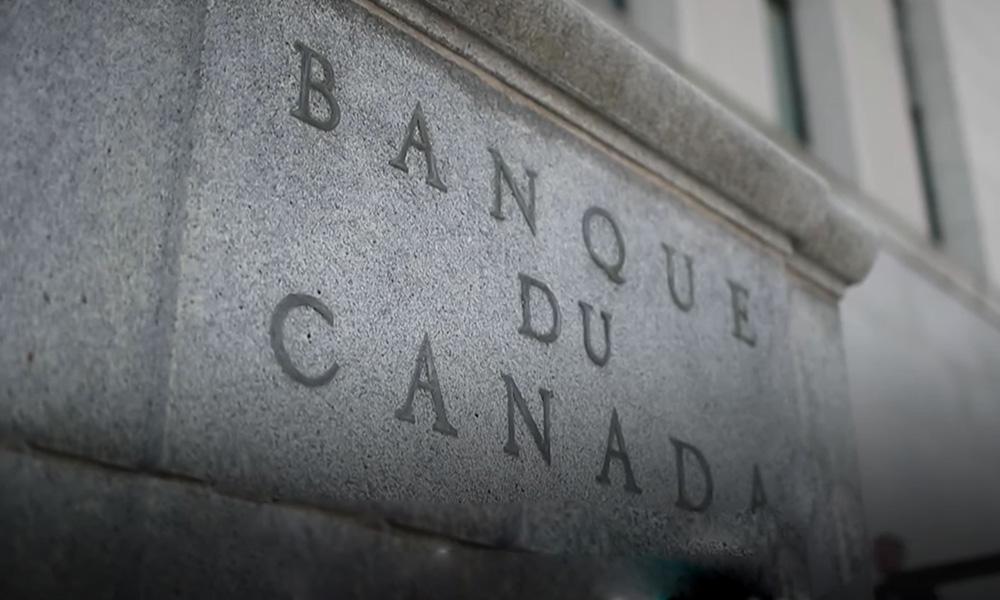Bank of Canada interest rate decision outlook: Wednesday is likely to remain unchanged, but expectations of an August rate cut are rising
2025-07-30 11:34:40

Consensus on interest rates remaining unchanged: economists unanimously predict
According to a survey of 13 economists by The Wall Street Journal last week, all respondents agreed that the Bank of Canada will maintain its overnight interest rate target at 2.75%, a 2.25 percentage point drop from last year's peak. If the forecast comes true, it will be the third consecutive time that the Bank of Canada has chosen to remain on hold, reflecting the central bank's cautious approach under the dual pressures of high inflation and economic slowdown.
The Bank of Canada's primary objective in setting interest rate policy is to achieve and maintain an inflation rate of 2%. However, current inflation data presents a mixed picture. June's Consumer Price Index (CPI) showed headline inflation at 1.9%, seemingly close to the Bank of Canada's target. However, core inflation (excluding volatile items like energy and food) has reached or exceeded 3% for three consecutive months, reaching the upper limit of the Bank of Canada's inflation target range. This elevated core inflation rate requires the Bank of Canada to exercise high vigilance in policymaking.
Divergence in interest rate cut expectations: August may become a key node
While the consensus expectation is that interest rates will remain unchanged this week, economists and market traders are divided on the likelihood of future rate cuts. Based on trading in the overnight index swaps market, traders see a low probability of the Bank of Canada cutting rates again before the end of 2025. However, 11 of the 13 economists surveyed predict at least one more rate cut by the end of the year, with seven predicting two.
Andrew Kelvin, head of Canadian and global rates strategy at TD Securities, is among analysts predicting up to two rate cuts in the fall. He notes that Canada has ample spare capacity in the economy, which will help to reduce inflationary pressures. "We expect economic growth to be close to zero for the rest of the year, which provides room for rate cuts," Kelvin said. This view reflects the cautious optimism among some economists about Canada's economic outlook.
Economic stagnation and trade uncertainty: Dual challenges coexist
Two recent quarterly surveys released by the Bank of Canada offer a clearer picture of the economy. They show that domestic economic activity has virtually stagnated, with both business and consumer confidence weighing on trade policy uncertainty. Against the backdrop of US President Trump's push to reshape the global trade landscape, Canadian businesses and consumers are cautious about the future. Businesses are reducing investment and hiring due to trade policy uncertainty, while consumers continue to hold back on spending due to concerns about job security.
Notably, while business inflation expectations eased somewhat in the second quarter, household inflation expectations remained stubbornly high. This divergence further exacerbates the central bank's challenge in balancing economic growth and inflation control. Minutes from the Bank of Canada's June 4th meeting revealed that senior officials expressed concern that core inflation could remain elevated for an extended period, a finding closely tied to consumers and business leaders adapting to trade uncertainty.
Labor market resilience and unemployment concerns: economic data are mixed
Despite slowing economic activity, Canada's labor market has shown surprising resilience. June's employment data was strong, with the largest increase in payrolls since December and a decline in the unemployment rate. However, Joe Brusuelas, chief economist at small business consulting firm RSM, warned that the overall unemployment rate remains elevated at 6.9%, compared to 5.7% using the US Department of Labor's calculation method. Furthermore, the 9% year-over-year increase in unemployment, coupled with only a 1.7% increase in jobs, suggests an uneven labor market recovery.
Brusuelas stressed: "The Bank of Canada cannot sit on the sidelines indefinitely. No matter what noises come from Washington, the central bank must eventually take action to cut interest rates." He believes that high unemployment and slowing economic growth will force the central bank to adopt a more active monetary policy to stimulate the economy.
Trade negotiations and tariff pressure: US-Canada relations become a key variable
Canadian Prime Minister Mark Carney is currently negotiating a tariff agreement with the Trump administration, with a deadline of August 1st. Canada's major exports, such as steel, aluminum, and automobiles, face the threat of high tariffs, but trade analysts estimate that approximately 80% of exports to the US qualify for duty-free status under the United States-Mexico-Canada Agreement (USMCA). Despite this, some economists believe that even if a new agreement is reached, it would be difficult to completely eliminate Canada's tariff burden.
Ethan Currie, an economist at National Bank Financial, said: "Based on the recent agreements between the United States, Japan and the United Kingdom, we believe that the new agreement will not be able to completely relieve Canada's tariff pressure." He predicted that the Bank of Canada may cut interest rates up to two more times in the future to cope with the continued impact of trade uncertainty on the economy.
Fiscal policy may become a new boost: interest rate cuts are not the only solution
Meanwhile, Royal Bank of Canada economist Claire Fan offers a different perspective. She is one of the few economists predicting the Bank of Canada will not cut interest rates further. Fan believes that the effects of the past eight months' rate cuts have yet to fully filter through to the economy, and that a hasty further rate cut may not be the best option. Furthermore, she points out that the Liberal government's upcoming fall budget is likely to allocate tens of billions of dollars in new spending to mitigate the impact of tariffs on the manufacturing-heavy economy.
"Fiscal spending is more suitable for responding to trade shocks rather than relying solely on monetary policy," Fan said. This view provides another possible solution for the Canadian economy, namely to boost the economy through fiscal stimulus rather than monetary easing.
Summary: Multiple considerations behind interest rate decisions
Overall, the Bank of Canada's decision to hold interest rates steady on Wednesday is virtually certain, but future policy direction remains uncertain. High core inflation, stagnant economic growth, a resilient labor market, and progress in US-Canada trade negotiations all create a complex backdrop for the central bank's decision. Economists are increasingly anticipating an August rate cut, but the potential role of fiscal policy cannot be ignored.
- Risk Warning and Disclaimer
- The market involves risk, and trading may not be suitable for all investors. This article is for reference only and does not constitute personal investment advice, nor does it take into account certain users’ specific investment objectives, financial situation, or other needs. Any investment decisions made based on this information are at your own risk.





















